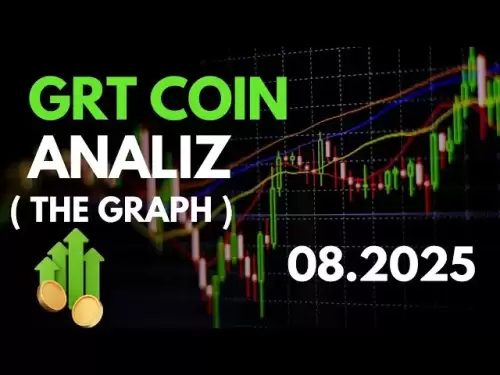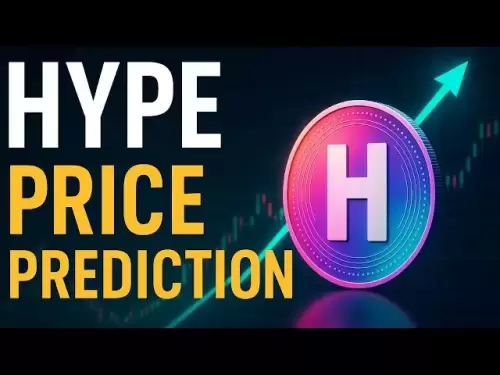-
 Bitcoin
Bitcoin $119300
2.40% -
 Ethereum
Ethereum $4254
-0.20% -
 XRP
XRP $3.184
-1.38% -
 Tether USDt
Tether USDt $1.000
0.00% -
 BNB
BNB $803.9
0.58% -
 Solana
Solana $183.1
1.50% -
 USDC
USDC $0.0000
0.01% -
 Dogecoin
Dogecoin $0.2339
-2.87% -
 TRON
TRON $0.3384
0.88% -
 Cardano
Cardano $0.8018
-0.29% -
 Hyperliquid
Hyperliquid $45.13
3.14% -
 Chainlink
Chainlink $22.10
0.96% -
 Stellar
Stellar $0.4439
-0.94% -
 Sui
Sui $3.875
-0.73% -
 Bitcoin Cash
Bitcoin Cash $570.7
0.24% -
 Hedera
Hedera $0.2589
-2.90% -
 Ethena USDe
Ethena USDe $1.001
-0.01% -
 Avalanche
Avalanche $23.83
-1.73% -
 Litecoin
Litecoin $123.8
2.61% -
 Toncoin
Toncoin $3.351
-1.13% -
 UNUS SED LEO
UNUS SED LEO $9.103
1.13% -
 Shiba Inu
Shiba Inu $0.00001356
-1.40% -
 Uniswap
Uniswap $10.93
-0.19% -
 Polkadot
Polkadot $4.057
-1.97% -
 Dai
Dai $1.000
0.01% -
 Cronos
Cronos $0.1646
4.66% -
 Ethena
Ethena $0.7974
8.11% -
 Pepe
Pepe $0.00001208
-2.89% -
 Bitget Token
Bitget Token $4.445
-1.70% -
 Monero
Monero $268.8
-2.00%
What are the advantages of decentralized perpetual contracts?
Decentralized perpetual contracts streamline trading by eliminating intermediaries, enhancing transparency, bolstering security, reducing trading fees, and maximizing market depth and liquidity through a distributed network.
Feb 22, 2025 at 10:25 pm
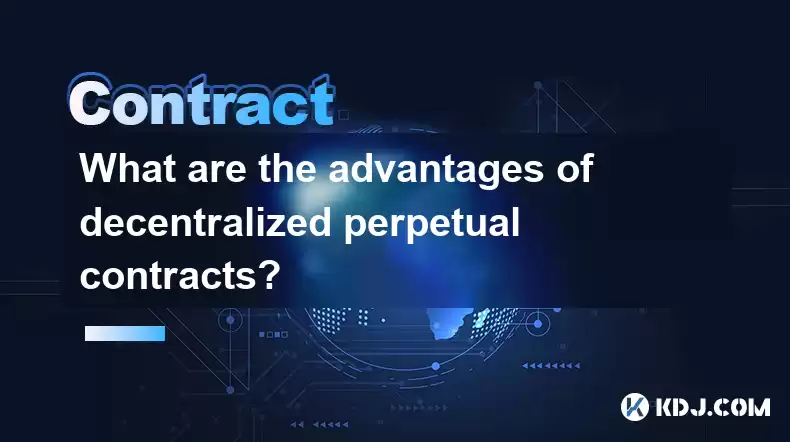
Key Points
- Elimination of intermediaries and centralized control
- Enhanced transparency and auditability
- Increased security and resilience
- Lower trading fees
- Greater market depth and liquidity
Advantages of Decentralized Perpetual Contracts
1. Elimination of Intermediaries and Centralized Control
Decentralized perpetual contracts remove the need for intermediaries, such as exchanges and clearinghouses, which can reduce costs, increase transparency, and eliminate reliance on trusted third parties. In a decentralized system, transactions are processed and executed on a distributed network, ensuring that no single entity has control over the market.
2. Enhanced Transparency and Auditability
Decentralized perpetual contracts are built on blockchain technology, which provides immutable and transparent records of all transactions. This allows traders to verify the accuracy and fairness of the market data, monitor the behavior of market participants, and identify any potential manipulation or misconduct.
3. Increased Security and Resilience
Decentralized perpetual contracts are more secure than centralized alternatives due to their distributed nature. Cryptocurrency transactions are cryptographically secured, making them resistant to fraud, hacking, and manipulation. Additionally, the distributed network provides redundancy, ensuring that the market continues to operate even if individual nodes experience outages.
4. Lower Trading Fees
Decentralized perpetual contracts typically have lower trading fees than centralized exchanges, as they eliminate the need for costly middlemen and operating expenses. Traders benefit from reduced transaction costs, which can translate into significant savings over time, especially for high-volume traders.
5. Greater Market Depth and Liquidity
Decentralized perpetual contracts aggregate liquidity from multiple sources, creating a deeper and more liquid market. This benefits traders by providing access to more trading opportunities, tighter spreads, and reduced slippage, which can improve trading profitability.
FAQs
Q: What is a perpetual contract?
A: A perpetual contract is a type of financial instrument that allows traders to speculate on the future price of an underlying asset without having to take ownership of the asset itself. Perpetual contracts are similar to futures contracts but differ in that they do not have an expiration date and can be held indefinitely.
Q: What are perpetual contracts used for?
A: Perpetual contracts are used for a variety of purposes, including hedging, speculation, and arbitrage. They allow traders to gain exposure to the price movements of an underlying asset without having to buy or sell the asset directly.
Q: What are the risks of trading perpetual contracts?
A: Trading perpetual contracts involves the risk of losing funds, as the value of the contracts can fluctuate significantly. Traders should carefully consider their risk tolerance and trading strategies before entering into perpetual contract transactions.
Disclaimer:info@kdj.com
The information provided is not trading advice. kdj.com does not assume any responsibility for any investments made based on the information provided in this article. Cryptocurrencies are highly volatile and it is highly recommended that you invest with caution after thorough research!
If you believe that the content used on this website infringes your copyright, please contact us immediately (info@kdj.com) and we will delete it promptly.
- Shiba Inu's Comeback Trail and the Meme Coin Mania: Can $SHIB Deliver a 12,000x Return?
- 2025-08-11 18:30:11
- Pudgy Penguins, Bitcoin Penguins, and the $22M Meme Coin Mania: A New York Perspective
- 2025-08-11 17:10:11
- Bitcoin L2 Heats Up: SatLayer (SLAY) Lists on KuCoin Amidst Layer-2 Boom
- 2025-08-11 16:50:12
- Ethereum, Coin Market Cap, and Solfart Token: A Wild Ride in the Crypto Universe
- 2025-08-11 17:50:12
- Riding the ETH Wave: GoldenMining's ETH Contracts and the Price Surge
- 2025-08-11 17:55:12
- DOGE, SHIB, and the Crypto Landscape: What's Hot and What's Not
- 2025-08-11 18:01:04
Related knowledge
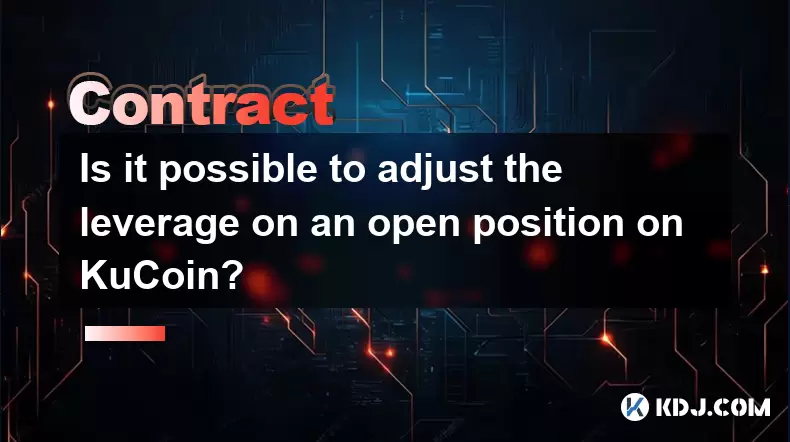
Is it possible to adjust the leverage on an open position on KuCoin?
Aug 09,2025 at 08:21pm
Understanding Leverage in KuCoin Futures TradingLeverage in KuCoin Futures allows traders to amplify their exposure to price movements by borrowing fu...
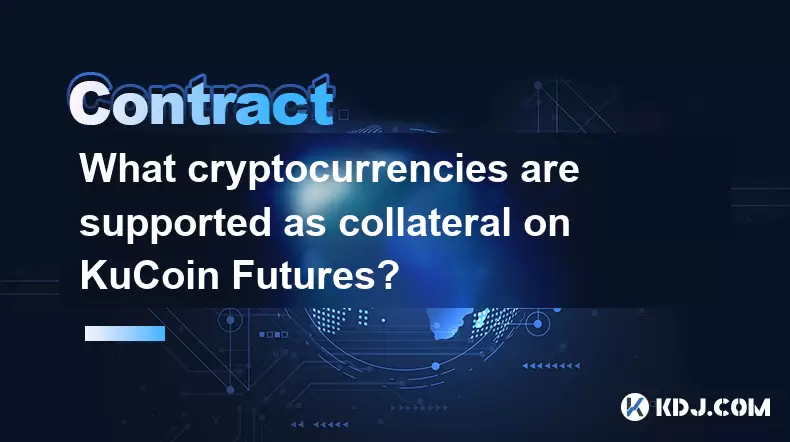
What cryptocurrencies are supported as collateral on KuCoin Futures?
Aug 11,2025 at 04:21am
Overview of KuCoin Futures and Collateral MechanismKuCoin Futures is a derivatives trading platform that allows users to trade perpetual and delivery ...
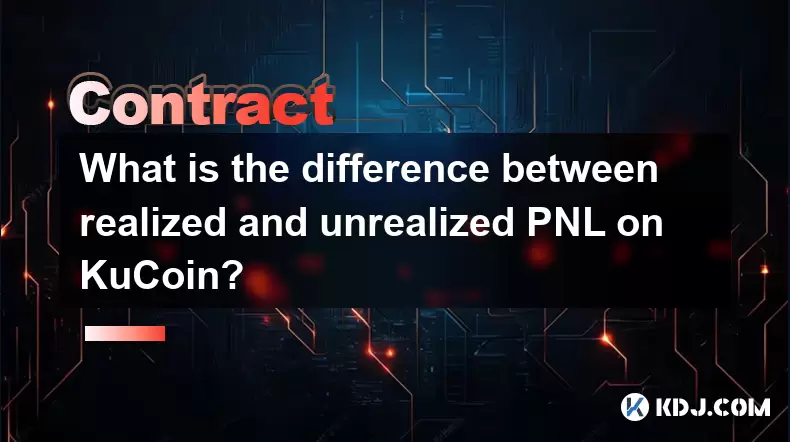
What is the difference between realized and unrealized PNL on KuCoin?
Aug 09,2025 at 01:49am
Understanding Realized and Unrealized PNL on KuCoinWhen trading on KuCoin, especially in futures and perpetual contracts, understanding the distinctio...
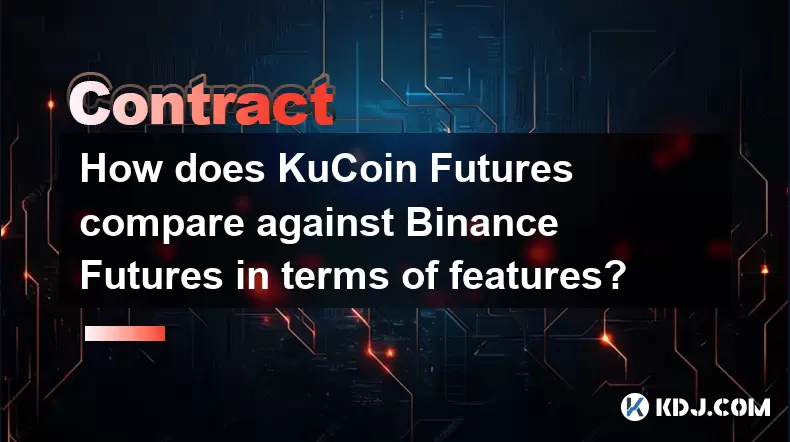
How does KuCoin Futures compare against Binance Futures in terms of features?
Aug 09,2025 at 03:22am
Trading Interface and User ExperienceThe trading interface is a critical component when comparing KuCoin Futures and Binance Futures, as it directly i...
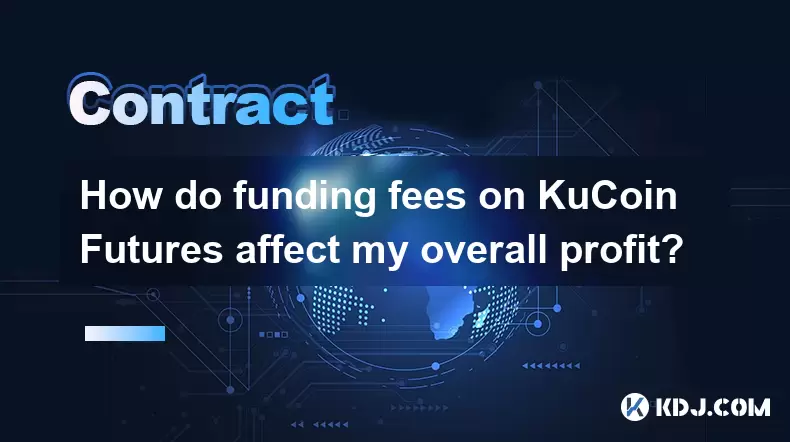
How do funding fees on KuCoin Futures affect my overall profit?
Aug 09,2025 at 08:22am
Understanding Funding Fees on KuCoin FuturesFunding fees on KuCoin Futures are periodic payments exchanged between long and short position holders to ...
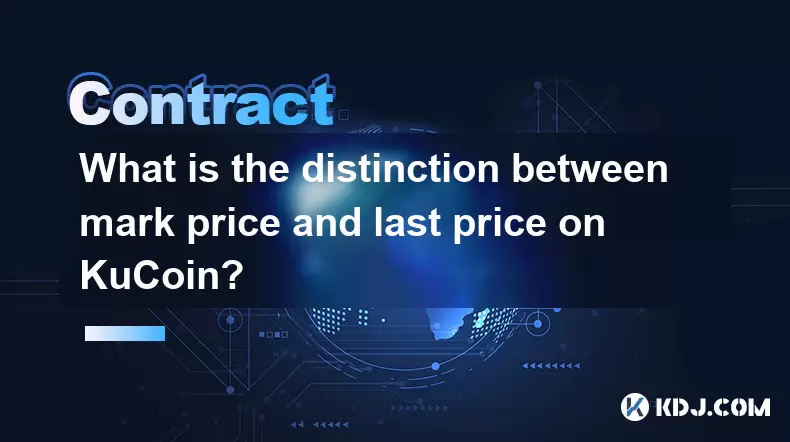
What is the distinction between mark price and last price on KuCoin?
Aug 08,2025 at 01:58pm
Understanding the Basics of Price in Cryptocurrency TradingIn cryptocurrency exchanges like KuCoin, two key price indicators frequently appear on trad...

Is it possible to adjust the leverage on an open position on KuCoin?
Aug 09,2025 at 08:21pm
Understanding Leverage in KuCoin Futures TradingLeverage in KuCoin Futures allows traders to amplify their exposure to price movements by borrowing fu...

What cryptocurrencies are supported as collateral on KuCoin Futures?
Aug 11,2025 at 04:21am
Overview of KuCoin Futures and Collateral MechanismKuCoin Futures is a derivatives trading platform that allows users to trade perpetual and delivery ...

What is the difference between realized and unrealized PNL on KuCoin?
Aug 09,2025 at 01:49am
Understanding Realized and Unrealized PNL on KuCoinWhen trading on KuCoin, especially in futures and perpetual contracts, understanding the distinctio...

How does KuCoin Futures compare against Binance Futures in terms of features?
Aug 09,2025 at 03:22am
Trading Interface and User ExperienceThe trading interface is a critical component when comparing KuCoin Futures and Binance Futures, as it directly i...

How do funding fees on KuCoin Futures affect my overall profit?
Aug 09,2025 at 08:22am
Understanding Funding Fees on KuCoin FuturesFunding fees on KuCoin Futures are periodic payments exchanged between long and short position holders to ...

What is the distinction between mark price and last price on KuCoin?
Aug 08,2025 at 01:58pm
Understanding the Basics of Price in Cryptocurrency TradingIn cryptocurrency exchanges like KuCoin, two key price indicators frequently appear on trad...
See all articles





















